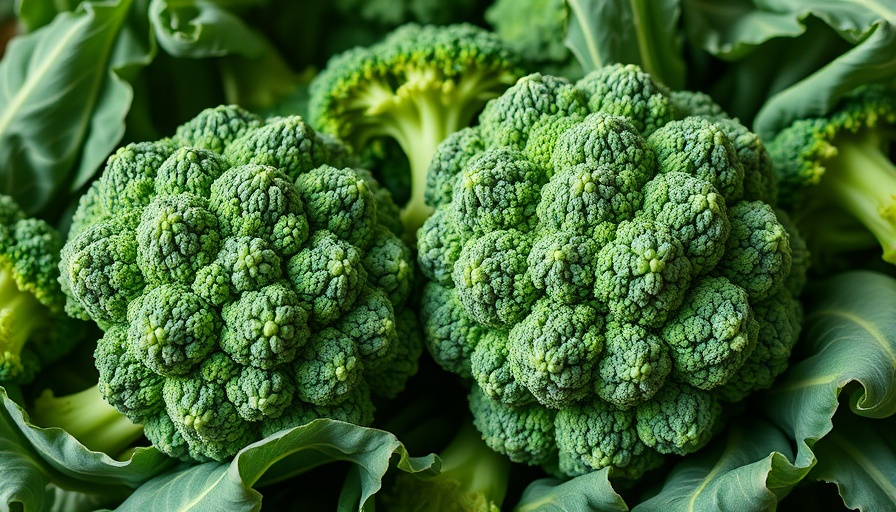
Understanding Broccoli's Role in the Keto Diet
If you've been asking yourself, "Is broccoli keto?" you're not alone! For those following a ketogenic lifestyle who want to maintain low-carb consumption while maximizing nutrient intake, this green cruciferous vegetable comes highly recommended. Not only is broccoli keto-friendly, but it also provides a plethora of health benefits, making it a versatile choice for those concerned about metabolic issues like diabetes or high cholesterol.
Nutritional Profile of Broccoli
Low Carb Content
Broccoli shines in the carb department with just 3 grams of net carbs per cup when cooked. The total carb count is around 6 grams, but this includes 3 grams of fiber, meaning that the impact on blood sugar levels is minimal. This is an essential aspect of the keto diet, which seeks to keep carbohydrate intake low to achieve ketosis—the process by which your body burns fat for fuel instead of carbs.
For anyone managing conditions like high blood sugar or diabetes, incorporating fiber-rich, low-carb vegetables like broccoli can assist in maintaining stable glucose levels while still feeling satiated.
Vitamins and Minerals Abound
Broccoli isn’t just a low-carb hero; it’s also loaded with essential vitamins and minerals. Rich in Vitamin C and K, this veggie can support immune health, improve wound healing, and help maintain bone density, respectively. Moreover, the compounds sulforaphane and indole-3-carbinol found in broccoli may have protective effects against various diseases and support cardiovascular health.
Potential Risks of Consuming Broccoli on Keto
While broccoli is generally regarded as a fantastic addition to a keto diet, it’s important to be aware of some potential downsides. For individuals with hypothyroidism, excessive consumption of cruciferous vegetables like broccoli may interfere with thyroid function. However, this applies to those with pre-existing conditions who consume it in large amounts without proper balance.
Risk Factors When Choosing Your Veggie
As with many health-oriented choices, balance and moderation are key. Even healthful foods can pose risks if consumed in excess. If you have a specific health condition or dietary restrictions, it’s wise to consult with a healthcare provider or nutritionist to tailor your vegetable intake accordingly.
Creative Ways to Enjoy Broccoli on Your Plate
Cooking with broccoli doesn't have to be boring! There are countless delightful ways to incorporate this veggie into your meals:
- Roasted Broccoli - Toss broccoli florets with olive oil, garlic, salt, and pepper before roasting them to achieve a delicious, caramelized flavor.
- Broccoli Salad - Use raw broccoli in a salad mixed with nuts, cheese, and a keto-friendly dressing for a crunchy and satisfying dish.
- Broccoli Smoothies - For the adventurous, blend broccoli into smoothies. When mixed with other veggies and low-sugar fruits, it provides an unexpected nutrient boost!
Alternatives for Broccoli on a Keto Diet
If you find broccoli is not your favorite, there are great substitutes that can fit into a ketogenic lifestyle:
- Cauliflower - A popular alternative known for its versatility.
- Zucchini - Low in carbs and great for sautés or stir-fries.
- Spinach - Nutrient-rich and can be eaten cooked or raw.
Conclusion: Broccoli is a Keto Powerhouse
In conclusion, broccoli is not just keto-friendly but also a nutritious powerhouse! It provides numerous health benefits while helping you maintain a balanced diet. If you're managing diabetes, high cholesterol, or trying intermittent fasting, consider including this vegetable in your meals.
Now that you know the health perks and delicious ways to incorporate broccoli into your diet, why not take action? Try out a broccoli recipe today and experience the health benefits firsthand!
 Add Row
Add Row  Add
Add 



 Add Row
Add Row  Add
Add 


Write A Comment